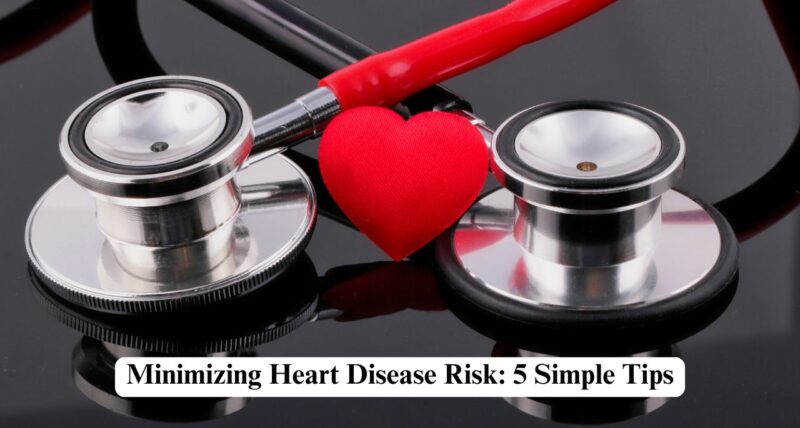Heart disease remains the primary cause of death, with many factors contributing to its outcome being within our immediate control. The following are 5 basic strategies you can use to effectively manage heart disease risk:
1. Nourish Your Heart With A Healthy Diet
A healthy diet is the foundation of a healthy heart. To maintain a healthy diet, it is recommended to consume a variety of whole, natural food sources such as fruits, vegetables, lean proteins, and more. These food varieties are plentiful in supplements, fiber, and cell reinforcements, which ensure appropriate cardiovascular working. Soaked and trans fats have been linked to increased cholesterol levels in red meat, broiled food, and handled food sources.
2. Get Moving: The Heart Loves Exercise
Heart-healthy regular actual work: Hold for at least 30 minutes of moderate-force actual work most days of the week. Wearing shoes for walks, swimming laps, cycling, or engaging in a favorite mental rhythm are all important activities. Normal activity assists in monitoring with weighting, brings down pulse, and further develops cholesterol levels. Every piece counts.
3. Kick The Habit: Quit Smoking
Tobacco smoking is the main factor for heart disease. It harms the veins, increments pulse, and results in the collection of plaques inside the arteries. Stopping smoking can likewise be among the most intense things an individual can do to advance their heart’s well-being. Numerous assets help smoking end, including, but not restricted to, nicotine substitution, directing, and support groups.
4. Manage Stress: Find Your Zen
Chronic stress will kill your heart. Use activities in stress management to maintain a healthy cardiovascular system. Engaging in yoga, meditation, deep breathing exercises, or outdoor activities can help reduce stress hormones and promote relaxation.
5. Regular Check-Ups: Know Your Numbers
Among the health promotion activities, you can engage in regular check-ups at your doctor’s facility to monitor your heart health. This can easily enable your doctor to identify and manage early heart disease risk factors like high blood pressure, high cholesterol, and diabetes. Besides, your doctor can advise or recommend something for you to benefit your heart health.
To reduce the risk of heart disease, try incorporating these simple steps into your daily routine. Now, never is too late, so do remember that you can always begin working on positive changes to your heart health now.



